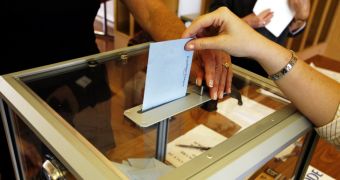A DDoS attack on popvote.hk, a site that hosts an online poll for the residents of Hong Kong to express their opinion on the current election system, failed to disrupt the activity of the website.
According to Matthew Prince, founder and CEO of CloudFlare – the company that protected the website from being taken down, the attack could be thwarted because the company knew about its imminence and took the necessary precautions.
At its peak, the DDoS recorded traffic of 300GB per second, which makes it the most sophisticated attack the company has seen.
Knowing in advance about it allowed CloudFlare to enable DNS sinkholes so that the bad traffic did not reach CloudFlare network or the polling website. The system worked like a charm.
"Since we had advanced warning the attack was coming, we'd put in place measures to sinkhole traffic in certain regions so it never hit our network," said Price to The Register.
In order to keep the website running, the company also locked it down for users outside Hong Kong.
The attacks started on Friday morning, a few hours before the poll kicked off and it kept on going even on Monday, according to Matthew Prince.
The poll has been initially organized for the weekend, but it was extended until June 29 so that further Internet outages would not interfere with the voters.
During the referendum, which was an unofficial one, all activity continued without a glitch despite the heavy traffic directed towards the website.
Matthew Prince also said that the attack was a complex one and that it "may well have been the largest attack we, or anyone else, have ever seen."
The residents of Hong Kong have tried to establish a democratic system for years, as the current chief executive for the colony is chosen by a 1200-member committee and business groups that are pro-Beijing.
There is no information about the source of the attack, but the organizers of the poll, the pro-democracy movement called Occupy Central and the University of Hong Kong, had hopes for more than 300,000 votes to be cast.
On Sunday evening, the number of voters was close to 700,000 and included people expressing their opinion at 15 polling stations.
Beijing’s position as far as a system with direct elections is concerned is open and officials said that the city could enjoy universal suffrage as early as 2017.
After this incident, Matthew Prince said on Twitter that opening a CloudFlare office in Singapore is given some thought.

 14 DAY TRIAL //
14 DAY TRIAL //